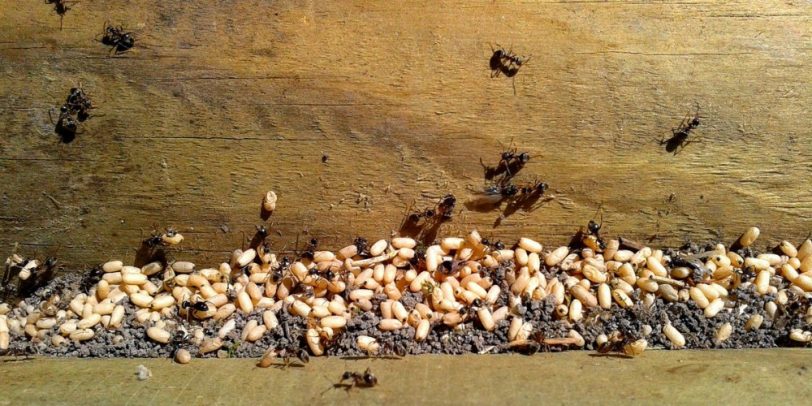As the weather starts to warm up, you may start to notice a more prominent presence of insects that are close to your home. One of the most common household insects this time of year is the ever so familiar house ant.
Ant Colonies
Ants love warm weather and will find any way they can to get inside of your home. An ant infestation can range anywhere from a small group of a few dozen ants to a highly organized colony that consists of millions of ants.
The thought of this many ants under your own roof may not seem possible. However, ants are excellent scavengers and are able to establish solid ant colonies once a dependable food and water source is discovered.
Ants can thrive in most ecosystems and their success is attributed to their social organizations and their ability to modify habitats, tap specific resources and their ability to defend themselves.
Communicating Ants
Ants are excellent communicators with one another. They communicate through smells, sounds, and touch. When ants discover a food source, they leave an invisible scented trail for the other ants in their ant colonies, making it possible for the other ants to find the food and take it back to the nest.
Like other insects, ants perceive smells with their long, thin and mobile antennae. If a food source begins to run out, then the ants no longer leave the invisible scented trail. This allows the scent to dissipate so the ants in the colony are not led to a food source that no longer exists.
Ant Pheromones
Ants are some of the smallest insects, making it pretty easy for homeowners to step on and crush them. When an ant is smashed or crushed, their body emits an alarm pheromone that sends nearby ants into an attack frenzy and attracts other ants from farther away.
Some ant species even use something called propaganda pheromones to confuse enemy ants and make them fight amongst themselves. Ants are some of the most clever and brilliant insects that we come in contact with. Unfortunately, this makes it difficult to remove them from our homes and prevent them from ever coming back again.
Attacking Ants
Ants attack and defend themselves by biting – and in some species stinging – injecting chemicals into the victim. An ant bite can become quite irritating, leaving a welt on your skin and a sensation of the constant need to scratch the bite.
Croach® Ant Control
Ants are very aggressive when it comes to protecting their colony and nests. Croach® is skilled and experienced in combating all species of ants. Our technicians will remove them from your home and prevent future invasions. Contact us today for a free consultation!
Free Pest Inspection

